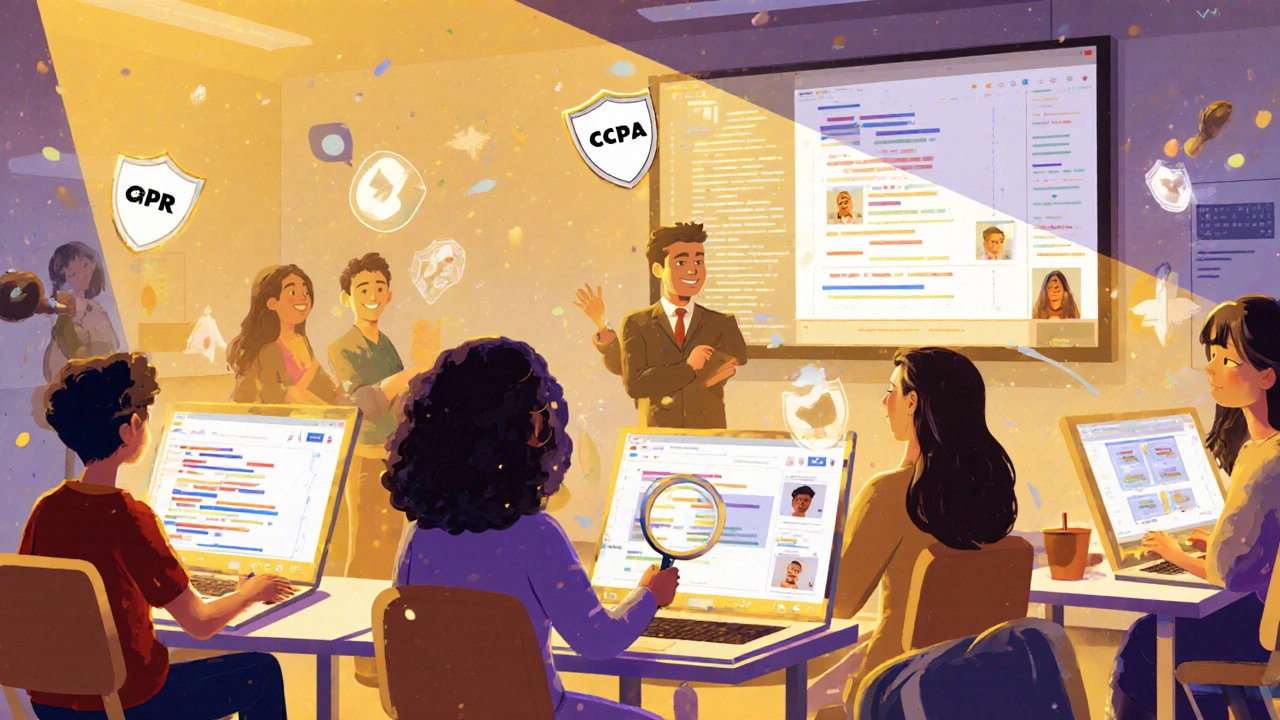Privacy Laws in Online Learning: What You Need to Know
When you sign up for an online course, you’re not just giving your email—you’re handing over your learning habits, progress, maybe even your face through proctoring software. That’s why privacy laws, legal rules that control how personal data is collected, stored, and used in digital education. Also known as data protection regulations, they’re not optional—they’re the backbone of trust in online learning. Without them, platforms could sell your study patterns to advertisers, leak your exam scores, or track your every click. And if you’re running a course? Ignoring these laws can cost you your business.
One of the biggest FERPA compliance, a U.S. federal law that protects student education records. Also known as Family Educational Rights and Privacy Act, it applies to any school or platform receiving federal funding—and many private platforms follow it anyway because it’s the gold standard. If your course collects grades, attendance, or even discussion posts from students, FERPA says you can’t share that data without consent. Then there’s SOC 2 certification, a security framework for tech companies that handle customer data. Also known as Service Organization Control 2, it isn’t a law, but it’s what enterprise clients demand before they’ll buy your course platform. It proves you’ve got real controls around data security, availability, and confidentiality. And don’t forget data protection, the broader practice of safeguarding personal information from misuse or breaches. Also known as information privacy, it includes everything from encrypting student emails to deleting accounts when requested.
These aren’t abstract rules—they show up in your daily work. If you use proctored exams, you’re dealing with video recordings that must be stored securely. If you collect testimonials, you need written permission to use a student’s name and image. If you use learning analytics to track progress, you can’t mine data without clear consent. The posts below walk you through real cases: how to write a Terms of Service that holds up in court, how to moderate a community without violating privacy, how to build a platform that passes a SOC 2 audit, and how to handle student data without becoming the villain.
There’s no way around this: if you’re in online education, you’re in the data business. And like any business, you need rules to stay legal, trusted, and safe. The articles here don’t just explain the laws—they show you how to live by them without losing your mind or your students’ trust.

Legal and Privacy Considerations in Online Community Management for Social Learning
Learn the legal and privacy rules every online learning community manager must follow to protect members' data, avoid fines, and build trust. Essential for educators and platform owners.